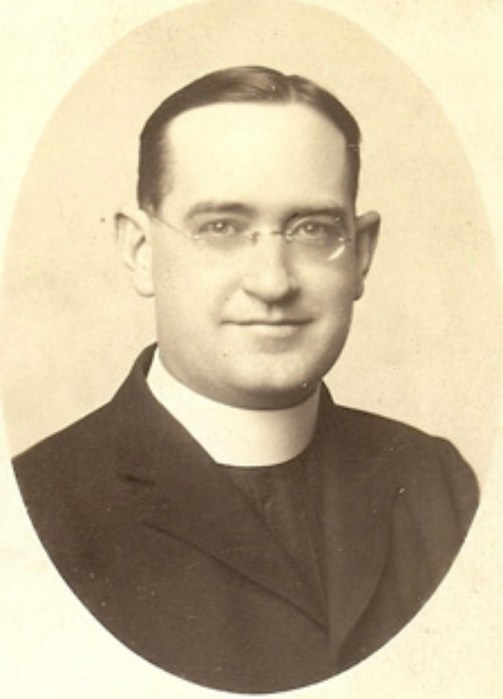by Christopher Verga
ON THE FIRST Memorial Day 1868 dedication of Arlington National Cemetery, future president James Garfield stated: “For the love of country they accepted death, and thus resolved all doubts, and made immortal their patriotism and virtue. I love to believe that no heroic sacrifice is ever lost, that the characters of men are molded and inspired by what their fathers have done, and that is treasured in American souls.”
But what about the sacrifices of a soldier’s family?
Karl Martin Kindt III never met his father but grew up believing his father was a knight in shining armor. In the heart of a beast, Karl’s father, Sergeant Karl Martin Kindt II of the United States Army, sacrificed his life to defeat fascism on April 12, 1945, in Werneck, Germany. His death came in the final month of the Nazi’s reign of terror amid some of the most brutal fighting in the European theater of war. According to fellow soldier William K. Wayne, Kindt was hit by shrapnel in a firefight.
Foreshadowing his mortality, Sergeant Kindt wrote a letter to his wife and soon-to-be son, Karl. The letter would be delivered with a dozen roses at his son’s birth, July 8, 1945, if he did not return from combat.
When Karl Martin Kindt III was born, the letter delivered by a trusted confidant read:
To the New one:
We, your mother and I thank God that you are here. We promised God to do our very best in your nurture and development. We will care for and pray for your good as long as we are able. Your life is our life and joy. Wherever I may be when you are reading this, smile just a little, and always remember that you have “THE BEST” mother in the world. If I should fail in my duty to return to her, I want you to take my place at her side. But don’t be dismayed, for it would be a high honor to give my life for the most sweetest,
most beautiful woman in existence!!, so that she may live in peace and security. But why be so gloomy – I’ll return, and when I do, I want to see you strong and healthy, and I want you to mind your mother. All my love to you, Suzy, and give some of my love to “The new one,” too.
Love always, your ever-loving husband,
DOC
For decades this letter was all Karl knew about his father. Based on this letter, Karl learned that his father was called Doc because he dreamed of be- coming a doctor, and his father’s nickname for his mother was Suzy. Karl’s in-depth search to discover who his father was and how he got to know his mother, Marjorie Howard, took him to the New York towns of Wendleville, Lock Port, and Tonawanda, then Camp Davis, North Carolina, to Werneck, Germany. But between Camp Davis and Werneck, Germany, Sergeant Kindt married and conceived Karl III while stationed at the Farmingdale Long Island base by Republic Aviation.
Upon being stationed in Camp Davis, North Carolina, Sergeant Kindt, was assigned to an Anti-Aircraft Battalion as a radio specialist. Kindt practiced communicating with the Women Auxiliary Service Pilots (WASP), tow- ing the anti-aircraft gunners’ moving targets during his stay at Davis. In late January 1944, Kindt would go to Farmingdale for additional radio training. In the fall of 1944, he arrived at Farmingdale’s Republic Airbase, home to Republic Aviation and the 2nd Ferrying Group of Women Auxiliary Service Pilots. Republic built and shipped the P-47 Thunderbolt fighter plane, which became one of the most mass-produced planes during World War II. WASP units in Farmingdale tested the aircraft before delivery and towed targets for target practice. Like his work in Camp Davis, Kindt would communicate with the pilots and the ground gunners to ensure the safety of the WASPS. Marjorie, wanting to be close to Kindt, took an apartment near the base. Understanding that Farmingdale would be his last stop before being shipped out to the European theater Kindt married Marjorie. The newlyweds went to New York City to celebrate their matrimony, with little to no knowledge it would be one of their last nights together.
On April 12, 1945, Kindt III’s father would not return. Like the children of 180,000 fathers who died in the war, Kindt lives without memories of his father. Sergeant Kindt and the sacrifices of families like his embody Memorial Day’s true meaning. Honoring our brave soldiers starts with understanding that the 180,000 are more than statistics of a battlefield but a sacrifice that spans generations.
If anyone has any documents or pictures of the Farmingdale military base between 1944 -1945 that they are willing to share, please email me at chrisv1081@hotmail.com. These documents are needed to construct the final days of Sergeant Kindt.
































